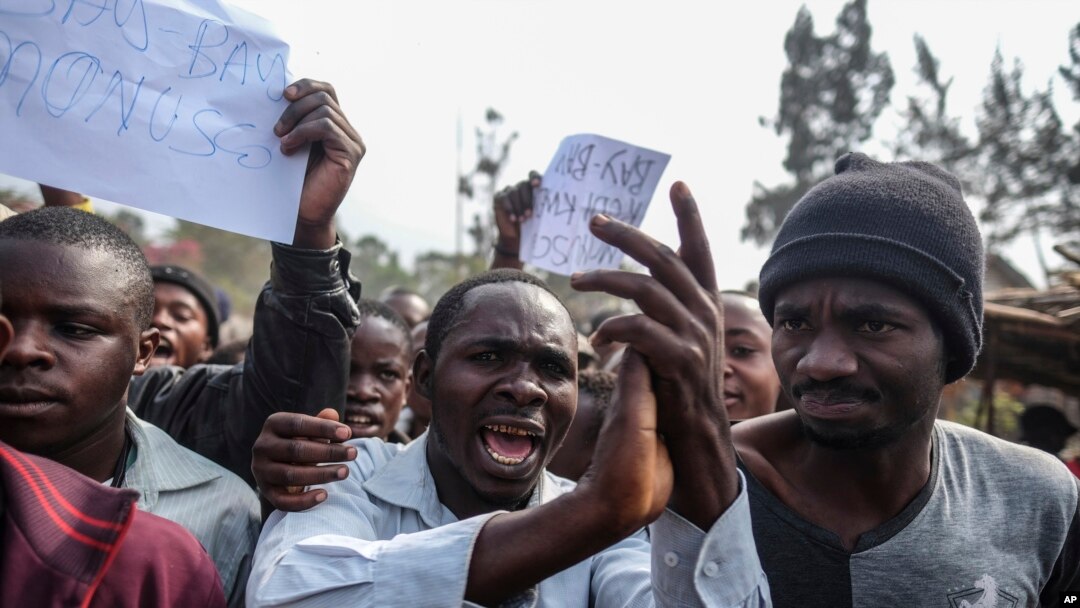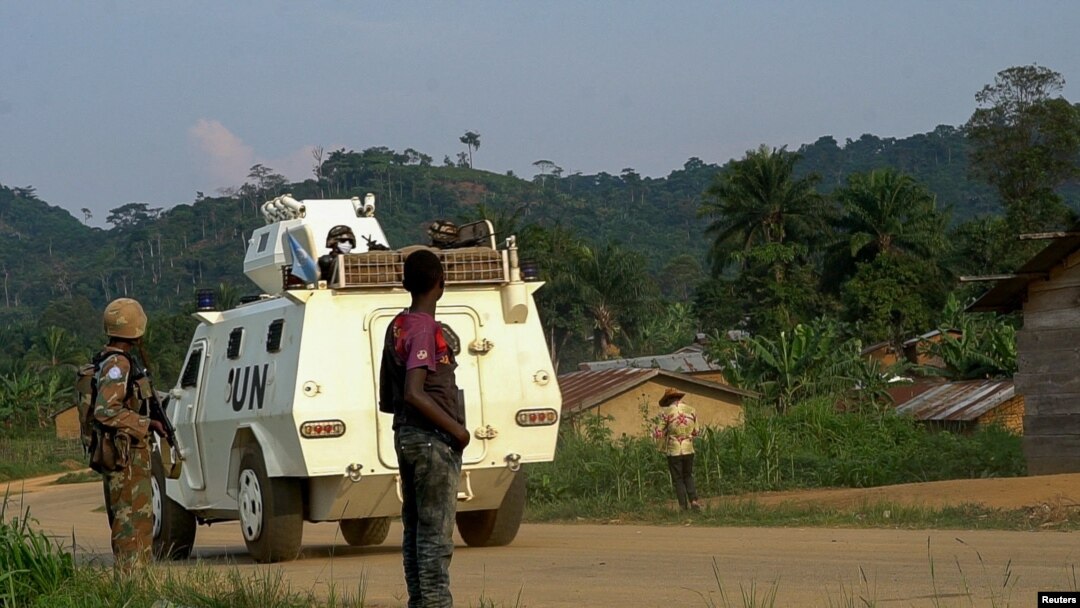Congolese Foreign Minister Christophe Lutundula told national television that the ceremony marked the end of a collaboration “which has proved its limits in a context of permanent war, without the longed for peace being restored to eastern Congo.”
In a speech to the U.N. General Assembly in September, Congolese President Felix Tshisekedi called for an accelerated withdrawal of the 15,000 peacekeepers. Earlier this month, he told Congress that “the phased withdrawal of the U.N. mission must be responsible and sustainable.”
While no firm timeline was announced Tuesday, observers say it’s unlikely to accelerate the withdrawal before the current election cycle is completed.

FILE —Demonstrators face off with police during a protest against the United Nations peacekeeping force (MONUSCO) deployed in the Democratic Republic of the Congo in Sake, some 15 miles (24 kms) west of Goma, July 27, 2022.
Tshisekedi seeks another term in the Dec. 20 presidential election. Already the conflict in the country's east has taken center stage. The president launched his campaign with a fiery speech accusing neighboring Rwanda of destabilizing eastern Congo.
Eastern Congo has long been overrun by dozens of armed groups seeking a share of the region’s gold and other resources. Some have been quietly backed by Congo’s neighbors. U.N. experts have noted “substantial evidence” that Rwanda is supporting the resurgent M23 rebel group, which Rwanda has denied.
Frustrated Congolese say that no one is protecting them from rebel attacks, leading to protests against the U.N. mission and others that have at times turned deadly.
Last month the Congolese government directed the East African regional force, deployed last year to help end the fighting, to leave the country by December. The government alleged a “lack of satisfactory results on the ground.”


